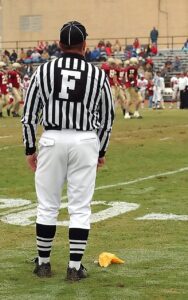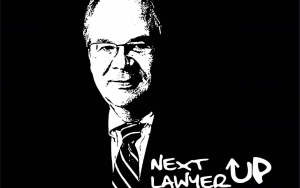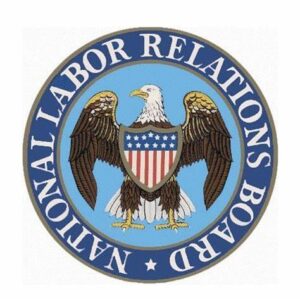
Even after nearly 30 years of practicing employment law, I still learn new things regularly. Last week, a friend on LinkedIn posted about an ADA “interference” claim being filed by the EEOC. Now, I’m very familiar with ADA discrimination and retaliation claims, but I’ve never encountered an interference clam. So, my first thought was: “This is just another example of EEOC overreach.”
But, another friend quickly slapped some education on me. The ADA explicitly provides that it is “unlawful to coerce, intimidate, threaten, or interfere with any individual in the exercise or enjoyment of, or on account of his or her having exercised or enjoyed, or on account of his or her having aided or encouraged any other individual in the exercise or enjoyment of, any right granted or protected by [the ADA].” 42 U.S.C. § 12203(b).
I suspect that I haven’t seen any ADA interference claims because most employers who try to “coerce, intimidate, threaten or interfere” with ADA rights are probably getting sued for discrimination or retaliation. Nevertheless, I decided to do a deeper-dive on the status of ADA interference claims in the Eleventh Circuit.
You can forgive your friendly, neighborhood employment lawyer for a lack of familiarity with ADA interference claims. Even the Eleventh Circuit Court of Appeals admits that it “has not yet had occasion to explain the proper standard for evaluating an ADA anti-interference claim.” Atchison v. Bd. of Regents of Univ. Sys. of Georgia, 802 F. App’x 495, 508 (11th Cir. 2020).
Even so, the Court has found that a person must actually possess ADA rights to pursue an interference claim. See EEOC v. STME, LLC, 938 F.3d 1305 (11th Cir. 2019). The primary holding of the STME case is that an employer did not violate the ADA when it fired an employee for taking a vacation in Ghana – because of a fear that the employee would contract the Ebola virus. I actually wrote about STME here: Fear of Ebola
But, I completely glazed over the interference claim. The EEOC tried to assert a claim that a threat of termination prior to the vacation was an “interference” under the ADA. But, the Eleventh Circuit rejected that claim. At the time of the threatened termination, the employee was not actually disabled by Ebola and thus had no right to a reasonable accommodation under the ADA. She had not associated with, or even planned to associate with, any known person disabled by Ebola either. So, because she did not possess any ADA rights, there was nothing to interfere with.
Atchison v. Bd. of Regents of Univ. Sys. of Georgia, 802 F. App’x 495, 508 (11th Cir. 2020), was actually a claim by a student claiming discrimination by Georgia Tech. Among other things, the student argued that a $1,229.63 fee imposed by Georgia Tech for retrieving and copying records interfered with his ADA rights. He also argued that inclusion of a picture of a red stapler (a reference to the movie “Office Space”) mocked him and interfered with his rights. Without establishing any particular standard for reviewing interference claims, the Eleventh Circuit found that neither action was an interference with ADA rights.
There have been several decisions from the various District Courts in the Eleventh Circuit discussing ADA interference claims. At least one from Alabama is notable.
In Mosely v. AMNS Calvert, LLC, No. 1:20-00517-KD-M, 2022 WL 843773 (S.D. Ala. Mar. 21, 2022), Judge Dubose adopted the following elements for analysis of an ADA interference claim:
- The plaintiff exercised a right protected by the ADA;
- The defendant coerced, intimidated, threatened, and/or interfered with the plaintiff’s enjoyment of his or her ADA rights; and,
- The defendant’s actions were motivated because the plaintiff exercised a right protected by the ADA.
Mosely, 2022 WL 843773 at *8. The plaintiff in Moseley requested a reasonable accommodation and then was assigned a heavy workload, was subjected to heightened scrutiny, and was placed on a Performance Improvement Plan.
Judge DuBose found that the ADA’s interference provision only prohibits “discriminatory conduct that is so severe or pervasive that it will have the effect of causing a protected person to abandon the exercise of his or her ADA rights.” Id. at *9. Judge DuBose found that the heavy workload and heightened scrutiny allegations did not meet that high standard.
Judge DuBose found that placement on a Performance Improvement Plan might meet the standard. But, the plaintiff still failed in element three because she could not show that placement on the PIP was the result of her request for accommodation. Instead, the unrefuted evidence showed that the plaintiff had performance issues that pre-dated her request for accommodation. And, those performance issues, which continued after the request for accommodation, were the basis for the PIP.
Here are my takeaways:
- ADA interference claims are rare.
- The law on ADA interference claims is still developing in the Eleventh Circuit
- The standard for proving an ADA interference claim appears sufficiently high that most employees will simply sue for discrimination or retaliation.
- To avoid any ADA claim (interference, discrimination or retaliation), an employer should never consider an employee’s disability or ADA rights when making an employment decision.







